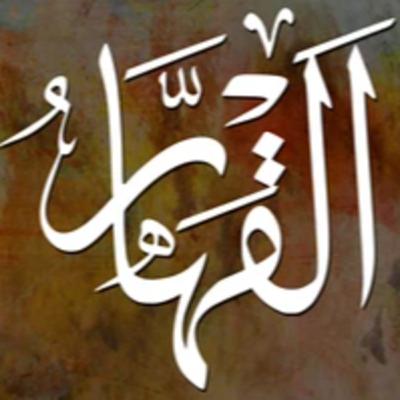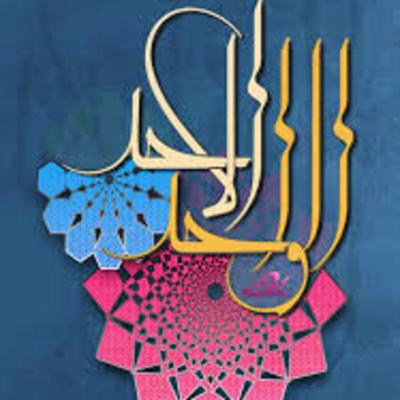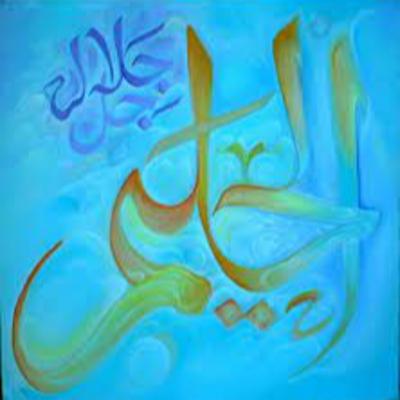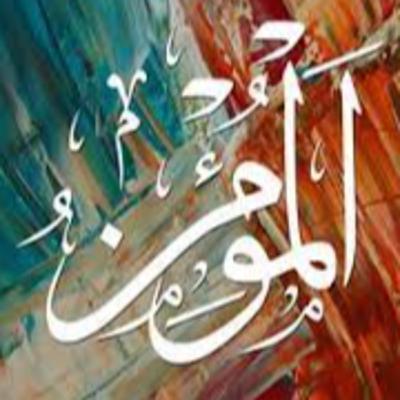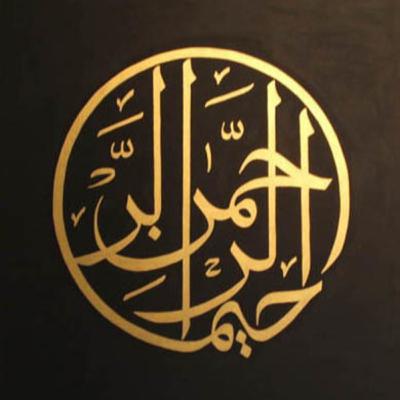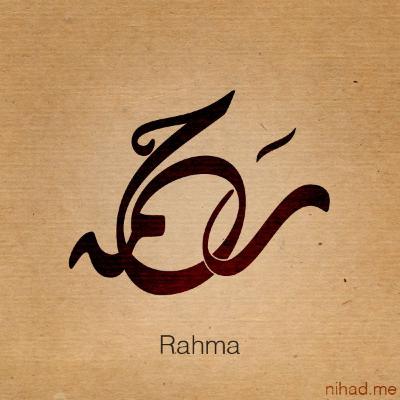Discover Dhikr With Noor
Dhikr With Noor

Dhikr With Noor
Author: Noor
Subscribed: 2Played: 4Subscribe
Share
© Noor
Description
اَلَا بِذِکْرِ اللہِ تَطْمَئِنُّ الْقُلُوۡبُ
(Ala bi zikrillahi tatmainnal quloob)
Verily in the rememberance of Allah do hearts find rest 13:28
This podcast wishes to serve simple reminders in a bite sized package, with the hope that it may lead to an increase in reflection, and a heightened consciousness of Allah. Indeed, reminders benefit the believers.
(Ala bi zikrillahi tatmainnal quloob)
Verily in the rememberance of Allah do hearts find rest 13:28
This podcast wishes to serve simple reminders in a bite sized package, with the hope that it may lead to an increase in reflection, and a heightened consciousness of Allah. Indeed, reminders benefit the believers.
14 Episodes
Reverse
In this episode we discuss the two names of allah that are derived from the root letters qaaf, haa and raa. We disccuss how Allah's power is infinite and absolute, and how there is nothing that was ever created that has the ability to overcome Allah.
We share the dua said to have been recited by RA (SAW) everytime he turned in his sleep.
لا إِلـهَ إِلاّ اللهُ الـواحِدُ القَهّـار رَبُّ السَّـمواتِ وَالأرْضِ وَما بَيْـنَهـما العَزيـزُ الغَـفّار
La ilaha illallah al-Wahidul-Qahhar, Rabbus-samawati wa ‘l-ardi wa ma baynahuma al-`Azīzul-Ghaffar.
English Translation:"There is none worthy of worship but Allah, the One, the Victorious, Lord of the heavens and the earth and all that is between them, the All-Mighty, the All-Forgiving."
لا إِلـهَ إِلاّ اللهُ الـواحِدُ القَهّـار رَبُّ السَّـمواتِ وَالأرْضِ وَما بَيْـنَهـما العَزيـزُ الغَـفّار
La ilaha illallah al-Wahidul-Qahhar, Rabbus-samawati wa ‘l-ardi wa ma baynahuma al-`Azīzul-Ghaffar.
English Translation:"There is none worthy of worship but Allah, the One, the Victorious, Lord of the heavens and the earth and all that is between them, the All-Mighty, the All-Forgiving."
لا إِلـهَ إِلاّ اللهُ الـواحِدُ القَهّـار رَبُّ السَّـمواتِ وَالأرْضِ وَما بَيْـنَهـما العَزيـزُ الغَـفّار
La ilaha illallah al-Wahidul-Qahhar, Rabbus-samawati wa ‘l-ardi wa ma baynahuma al-`Azīzul-Ghaffar.
English Translation:"There is none worthy of worship but Allah, the One, the Victorious, Lord of the heavens and the earth and all that is between them, the All-Mighty, the All-Forgiving."
لا إِلـهَ إِلاّ اللهُ الـواحِدُ القَهّـار رَبُّ السَّـمواتِ وَالأرْضِ وَما بَيْـنَهـما العَزيـزُ الغَـفّار
La ilaha illallah al-Wahidul-Qahhar, Rabbus-samawati wa ‘l-ardi wa ma baynahuma al-`Azīzul-Ghaffar.
English Translation:"There is none worthy of worship but Allah, the One, the Victorious, Lord of the heavens and the earth and all that is between them, the All-Mighty, the All-Forgiving."
لا إِلـهَ إِلاّ اللهُ الـواحِدُ القَهّـار رَبُّ السَّـمواتِ وَالأرْضِ
وَما بَيْـنَهـما العَزيـزُ الغَـفّار
La ilaha illallah al-Wahidul-Qahhar, Rabbus-samawati wa ‘l-ardi wa ma baynahuma al-`Azīzul-Ghaffar.
English Translation:"There is none worthy of worship but Allah, the One, the Victorious, Lord of the heavens and the earth and all that is between them, the All-Mighty, the All-Forgiving."
In this episode we discuss two names of Allah; Al Ahad and Al Waahid; both of which emphasize Tawhid-the Oneness of Allah. We discuss the meanings of the names, and the subtle differences between the two, and also discuss ways to live by them.
The two duas of Rasul Allah (SAW) shared in the episode are provided for reference below:
الَّلهُمَّ إِنِّي أَعُوذُ بِكَ أَنْ أُشْرِكَ بِكَ وأَنا َعلَمُ وأَستَغفِرُكَ لما لا أَعلَمُ
Allahumma inni a`udhu bika an ushrika bika wa ana a`lamu wa astaghfiruka lima la a`lamu ‘
O Allah I seek refuge in You from knowingly associating partners with You, and I seek Your forgiveness for that which I do not know.’
الَّـذي لَـمْ يَلِـدْ وَلَمْ يولَدْ وَلَمْ يَكـنْ لَهُ كُـفُواً أَحَـد أَنْ تَغْـفِرْ لي ذُنـوبي إِنَّـكَ أَنْـتَ الغَفـورُ الرَّحِّـيم
Allahumma inni as'aluka ya Allah bi'annaka 'l-Wahidu 'l-Ahadus-samad, alladhi lam yalid wa lam yulad, wa lam yakun lahu kufuwan ahad, an taghfir li dhunubi, innaka anta 'l-Ghafurur-Rahim.
"O Allah, I ask You. O Allah, You are the One, the Only, Self-Sufficient Master, Who was not begotten and begets not, and none is equal to Him. Forgive me my sins, surely you are Forgiving, Merciful."
In this episode we discuss Allah's Hilm; His lack of haste when it comes to punishment of wrongdoers, despite His capability and right to do so.
The Prophet’s ﷺ supplication during difficulty(al-Bukhārī, Ṣaḥīḥ al-Bukhārī):
لا إله إلا اللهُ العظيمُ الحليمُ ، لا إله إلا الله رَبُّ العرش العظيم ، لا إله إلا الله رَبُّ السماوات وربُّ الأرضِ ، لا إله إلا الله رَبُّ الْعَرشِ الكريم
Lā ilāha illā Allāh al-ʿaẓīm al-ḥalīm. Lā ilāha illā Allāh rabb al-ʿarsh al-ʿaẓīm. Lā ilāha illā Allāh rabb al-samāwāt wa rabb al-arḍ. Lā ilāha illā Allāh rabb al-ʿarsh al-karīm.
None has the right to be worshipped but Allah, the Majestic, the Most Forbearing, none has the right to be worshipped but Allah, the Lord of the Tremendous Throne. None has the right to be worshipped but Allah, the Lord of the Heavens and the Lord of the Honorable Throne
In this episode we discuss Allah's name Al Mumin, as The Ultimate Testifier of Truth, The One Who Inspires and Confirms faith in others, and The One Who Grants peace and security to the believers.
The following dua is included towards the end of the episode:
Ibn Abi Hatim recorded that Abu Sa`id, may Allah be pleased with him, said: "On the day of Al-Khandaq, we said: `O Messenger of Allahﷺ, is there anything we should say, for our hearts have reached our throats' (meaning in fear and anxiety)
Heﷺsaid:
«نَعَمْ، قُولُوا: *اللَّهُمَّ اسْتُرْ عَوْرَاتِنَا وَآمِنْ رَوْعَاتِنَا*»
(Yes, say: *O Allah, cover our weak points and calm our fears*)
Then Allah struck the faces of the enemy with the wind, and defeated them with the wind.
This was also recorded by Imam Ahmad bin Hanbal from Abu `Amir Al-`Aqadi.
- From the Tafsir of Surah Al Ahzab in Tafsir Ibn Katheer
This episode discusses the name Al Fattah as meaning The Opener, The Granter of Victory, The Judge. We discuss what it means to be Al Fattah, and the significance of calling upon Allah using this attribute especially during times of difficulty and distress.
Some of duas included in this episode are:
اَللَّهُـمَّ افْتَـحْ لِي أَبْوَابَ رَحْمَتـِكَ
allahumma iftah lee abwaba rahmatik
O Allah, open the gates of Your mercy for me
اَللَّهُـمَّ إِنِّي أَسْأَلُكَ مِنْ فَضْـلِكَ
allahumma innee as-aluka min fadlik
O Allah, I ask You from Your favour
ﺍﻟﻠّﻬُـﻢَّ ﻻ ﺳَـﻬْﻞَ ﺇِﻻّ ﻣﺎ ﺟَﻌَﻠـﺘَﻪُ ﺳَﻬـﻼً، ﻭَﺃَﻧْﺖَ ﺗَﺠْـﻌَﻞُ ﺍﻟْﺤَـﺰَﻥَ ﺇِﺫﺍ ﺷِـﺌْﺖَ ﺳَﻬـْﻼً“Allahumma la sahla illa ma ja’altahu sahla, wa ‘anta taj-alul hazna idha shi’ta sahla.”“O Allah! There is nothing easy except what You make easy, and You make the difficult easy if it be Your Will”
In this episode we discuss Allah's attribute of Justice in the establishment of the universe and creation, how Allah is the embodiment of justice, and how he expects adl from us, His creation in the form of justice towards others, as well as through creating balance in our personal lives. May Allah guide us all. Aameen
This episode discusses the attribute of lutf of Al Lateef, The Most Subtle, The Most Kind.
The dua at the end is penned by Sh. Mohammad Elshinawy, a researcher and scholar for Yaqeen Institute:
"O Allah, we testify that you are indeed al-Laṭīf; we implore You by Your mastery of every subtlety, and by Your sublime gentleness—to direct our steps every time the road splits, to guide us through every darkness that blankets us, and to soothe us through our nightmares and our pain." Aameen
This episode discusses the attribute Al Waddud; The Most Loving, The Most Affectionate, The Most Beloved.
Dua of Hazrat Dauood (AS) asking Allah for His love:
اللَّهُمَّ إِنِّي أَسْأَلُكَ حُبَّكَ وَحُبَّ مَنْ يُحِبُّكَ وَالْعَمَلَ الَّذِي يُبَلِّغُنِي حُبَّكَ اللَّهُمَّ اجْعَلْ حُبَّكَ أَحَبَّ إِلَىَّ مِنْ نَفْسِي وَأَهْلِي وَمِنَ الْمَاءِ الْبَارِدِ
Transliteration: Allāhumma innī as’aluka ḥubbaka wa ḥubba man yuḥibbuka wal-amalalladhī yuballighunī ḥubbak. Allāhummajal ḥubbaka aḥabba ilaiyya min nafsī, wa ahlī wa minal-mā’il-bārid
Translation: ‘O Allah, indeed, I ask You for Your love and the love of those who love You, and for the action that will cause me to attain Your love, O Allah, make Your love more beloved to me than myself, my family and cold water
In this episode we will discuss the names of Allah SWT that are derived from ghufr or ghufran, their meanings, and how we can implement the attribute of maghfirah in our own lives.
Dua taught to Abu Bakr RA, by the messenger of Allah (SAW):
اللَّهُمَّ إِنِّي ظَلَمْتُ نَفْسِي ظُلْمًا كَثِيرًا وَلَا يَغْفِرُ الذُّنُوبَ إِلَّا أَنْتَ فَاغْفِرْ لِي مَغْفِرَةً مِنْ عِنْدِكَ وَارْحَمْنِي إِنَّكَ أَنْتَ الْغَفُورُ الرَّحِيمُ
Translation: Allah, I have wronged myself greatly and no one forgives sins other than you, so grant me forgiveness coming from you, and have mercy on me, for you are the Oft Forgiving Most Merciful
In this episode we delve further into the specific characteristics of each of the names of Allah that are derived from mercy.
In this episode we explore the attribute of rehma of Allah and the names that are derived from it.
In this episode we discuss the origin of the name Allah, and discuss some of its special attributes.
In this episode we describe some of the qualities unique to the names of Allah.
In this very first episode we discuss the benefits of learning, using and implementing the beautiful names of Allah.
Dua Before Giving a Talk
رَبِّ ٱشْرَحْ لِى صَدْرِى وَيَسِّرْ لِىٓ أَمْرِى وَٱحْلُلْ عُقْدَةً مِّن لِّسَانِى يَفْقَهُوا۟ قَوْلِى
Rabbish rah lii sadrii wa yassir liii amrii wahlul 'uqdatam milli saanii yafqahuu qawlii
My Lord, expand for me my breast (with assurance) ease for me my task and untie the knot from my tongue that they may understand my speech.


